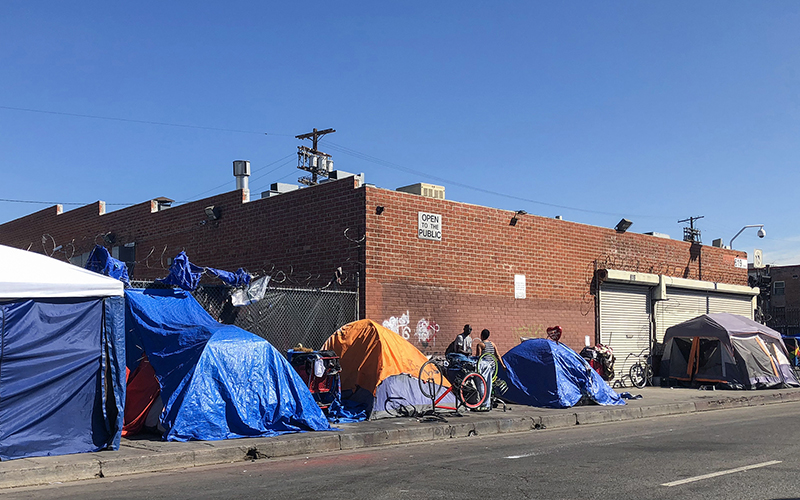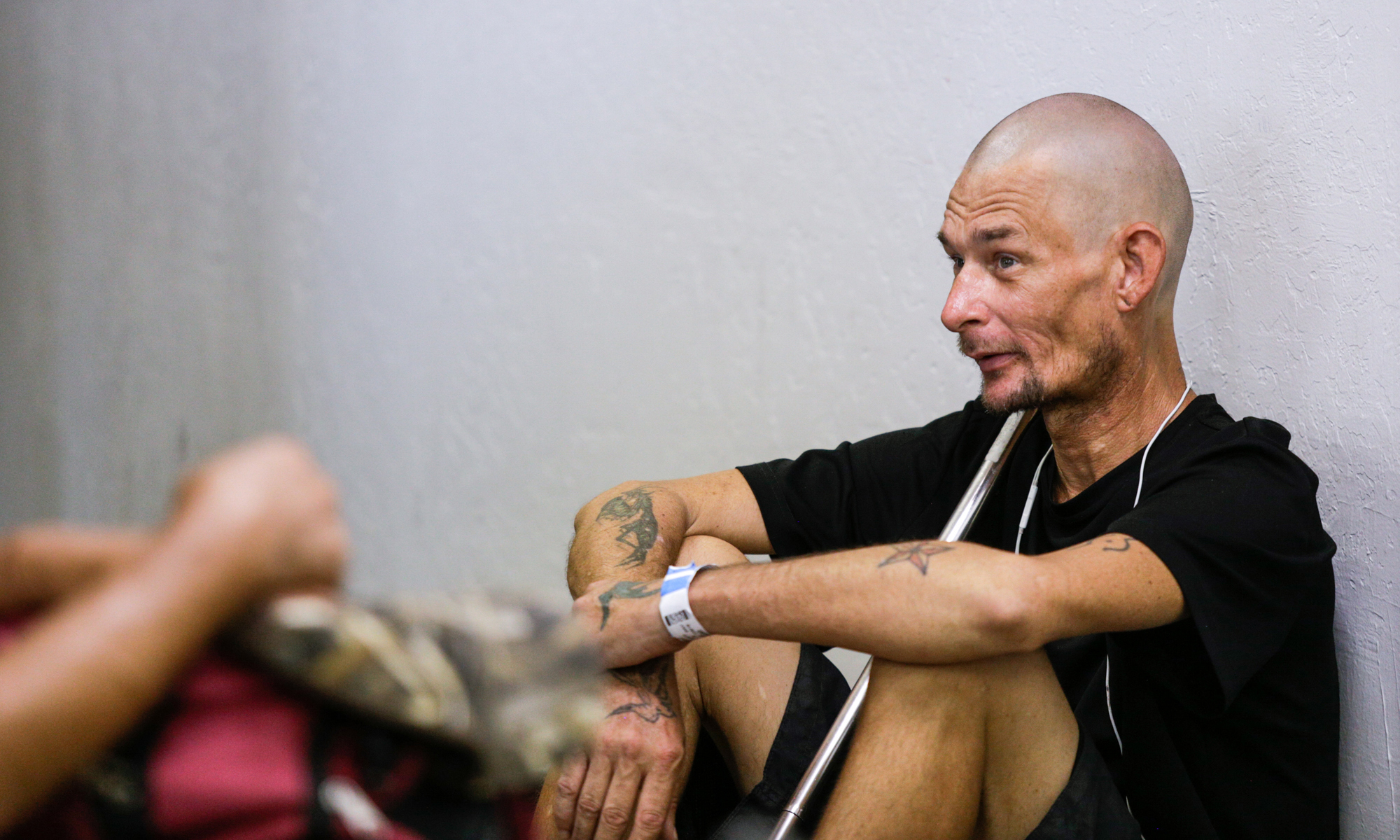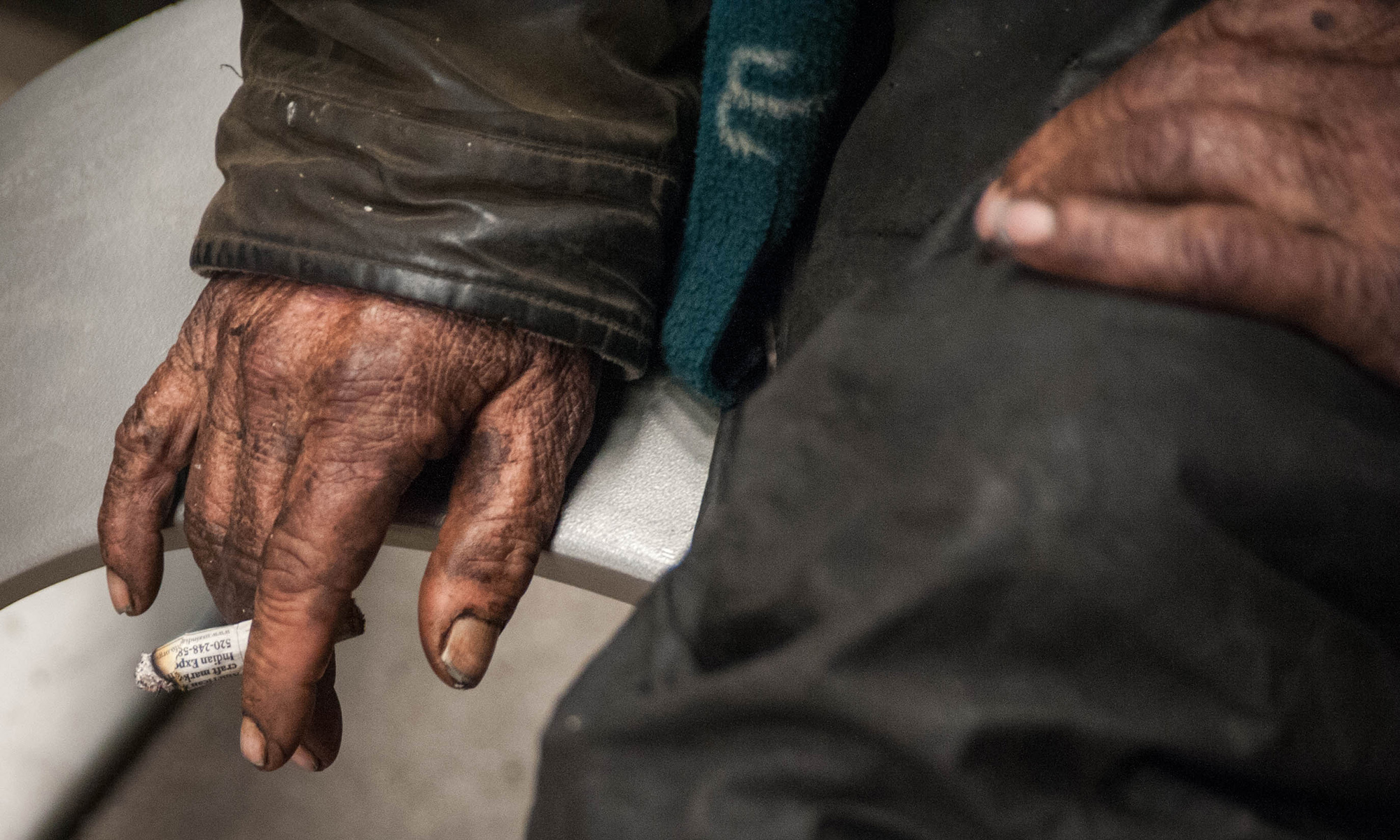LOS ANGELES – About 60,000 people are homeless in Los Angeles, and Mayor Eric Garcetti has declared homelessness a state of emergency.
“Housing to me is the prism through which we refract almost every other issue,” Garcetti said. “So if we’re talking about sustaining life in Los Angeles and California, traffic, the air we breathe, the poverty people experience, homelessness, even things like public safety, they’re all related to whether or not we can house people and house them in decent, clean, sustainable, affordable housing.”
LA’s infamous Skid Row has about 4,000 people living in tents and lean-tos in a 54-block radius. Despite many attempts to rehabilitate the area, the homeless have persisted for decades.
Mickey Gagnon, 53, lives on the streets.
“My husband and I came here from Las Vegas thinking that we had an apartment,” Gagnon said. “And when we got here, it was just way too expensive to live.”
She tried to find space in a shelter, but there was no room. And she worries about safety.
“Someone who could be your friend at six o’clock at night … then at midnight, kill you cause they know you have a couple dollars in your pocket.”
Gagnon’s mom, who had been paying their rent, died at 48, and that’s when Gagnon first become homeless.
She said she struggles with deep depression: “There’s still not a day that goes by that I don’t wish I could die and be with her.”
Jackie Vorhauer works for Skid Row Housing Trust, a nonprofit developer that’s served the area for about 30 years. Vorhauer works to educate the public on homelessness and sustainable housing solutions. The nonprofit builds affordable permanent supportive housing for homeless people.
The agency also provides on-site services, such as case management, life-skills training, counseling, health clinics and mental health help.
Three decades ago, Skid Row Housing Trust started buying many of the old and dilapidated buildings in and around downtown LA to turn them into affordable housing.
“A more sustainable model is to do more permanent supportive housing, which is supplying homes for people but with all the services on-site that they need to not only break the cycle of homelessness but to try to address issues where we can break the cycle of poverty,” Vorhauer said.
She said the trust can address mental, physical and emotional illness, and help people be more self-reliant. The trust has 26 buildings, home to nearly 2,000 people.
“It’s not just a Band-Aid for the time being,” she said. “This is a long term sustainable solution.”
So if this is the solution, why aren’t there more of these sustainable models throughout Los Angeles? The answer is complicated.
“More and more people in many cities across the world are becoming homeless because the price of real estate has gotten so high,” said Stephanie Pincetl, a sustainability scientist with the Institute of the Environment and Sustainability at UCLA and the director of the California Center for Sustainable Communities.
“That’s an enormous sustainability question for cities today because people need to live in places where there’s employment, where there’s activity, where their children can go to school, where there’s good services – and that happens to be largely in cities.”
Architect Rob Jernigan, regional manager of the San Francisco design firm Gensler, said the issue goes back to supply.
The company has been working with organizations such as the Skid Row Housing Trust to design and build sustainable housing for the homeless. Jernigan said this has not been an easy task, partly because it takes so long to deal with regulations, including environmental impact statements.
“With regards to housing, what that’s doing is that’s really slowing down the supply and increasing the cost,” Jernigan said. “Developers are required in this state to actually manage or mitigate the different impacts that that project may have so they’re not passing it on to the typical citizen. They really are bearing those costs.”
Mayor Garcetti said the city plans to build 100,000 units of housing just in LA.
This story is part of Elemental: Covering Sustainability, a new multimedia collaboration between Cronkite News, Arizona PBS, KJZZ, KPCC, Rocky Mountain PBS and PBS SoCal.


